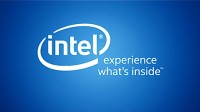With Revenue Down 20 Percent, Intel Plans to Reduce Costs
October 31, 2022
A sharp decline in demand for PCs is prompting Intel to reevaluate its expenditures, with reduced factory hours and staff reductions among the options under consideration. Intel CEO Pat Gelsinger also says the company is considering divestitures as it seeks to cope with a 20 percent drop in Q3 revenue, to $15.3 billion, and full-year outlook downsized by $1 billion. Intel has been undergoing a reinvention of sorts as it steps into the role of foundry. Increased capex for new plant construction means surgical precision is needed to achieve a goal of $3 billion in 2023 cost cuts.
Changes are necessary in order to “accelerate transformation,” Gelsinger shared Thursday in a presentation for analysts that noted the company is looking to escalate savings to the tune of $8-10 billion by the end of 2025, a process referred to as “right-sizing the organization.”

Intel is fortunate in that even as its bread-and-butter PC market contracts, overall demand for chips is increasing, presenting opportunity along with challenges resulting from “macroeconomic headwinds.”
“It really is hitting the accelerator and the brake at the same time,” Gelsinger told The Wall Street Journal. In August, Intel got a vote of confidence from Brookfield Asset Management, which announced an investment through its infrastructure division of up to $15 billion for a 49 percent stake in Intel’s manufacturing expansion at its Ocotillo campus in Chandler, Arizona. Intel, which called the deal a first-of-its-kind, is investing a like amount.
“Intel shares fell more than 3 percent before the results, though advanced more than 4 percent in post-market trading after laying out the cost-cutting drive,” WSJ reported. CNBC said Intel shares climbed “as much as 7 percent higher in extended trading.” Not a disastrous outcome, considering the adversities pounding tech stocks.
As the artificial boom triggered by at-home needs during the height of the COVID-19 pandemic levels off, PC sales have been particularly hard-hit, a trend compounded by inflation and recession fears. The result has been “tech companies more broadly” facing pressures, “driving gloomier-than-expected outlooks this week at companies including Microsoft Corp., Google parent Alphabet Inc. and Facebook parent Meta Platforms Inc. that have sent their shares sharply lower,” writes WSJ.
Intel’s Q3 revenue of $15.34 billion managed to outperform Refinitiv’s $15.25 billion projection. “Overall revenue declined 15 percent year over year in the quarter, which ended on October 1,” according to CNBC, noting that in Q2 revenue declined 22 percent.
“Adjusting for items like stock compensation and restructuring chargers, its 59 cents per share of profit well exceeded estimates of 32 cents from analysts surveyed by Yahoo,” CNET reports, adding “investors are happy.”
“Despite the worsening economic conditions, we delivered solid results,” Gelsinger said in the earnings release.
Related:
Chip Makers, Once in High Demand, Confront Sudden Challenges, The New York Times, 10/27/22

No Comments Yet
You can be the first to comment!
Sorry, comments for this entry are closed at this time.